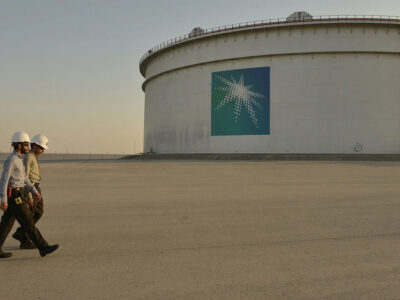The turmoil in Egypt, which has sparked a region-wide slump in stock markets, has raised risk premiums and will likely delay planned bond and equities issuance from Middle East borrowers.
Egyptian President Hosni Mubarak appointed a new interior minister on Monday as part of a revamped cabinet designed to defuse the most serious challenge to his rule in three decades.
“We are adding a political risk premium for equities in the region. That will change the valuation and prices for stocks here,” said Nadi Burgatti, head of asset management at Shuaa Capital, a Dubai-based investment bank.
The instability in Egypt has played out in regional markets – already classified as “frontier markets” and requiring a higher risk appetite – as bourses slumped and bonds fell after investors moved to hedge their exposure.
Egypt’s bourse remains closed after losing 16 percent in two sessions last week. But ripples from the protests are being felt globally, pushing up oil prices to nearly $100 a barrel, hitting equity markets and forcing investors into safe-haven assets such as the dollar.
The cost of insuring Egyptian and other Middle Eastern debt against default rose on Monday, as worries over political unrest spread to other countries in the region.
Dubai government’s bond due in 2020 eased on Monday, falling to trade below par while other bond prices across the region also slipped.
“The whole market is really edgy,” said one Dubai-based fixed income trader. “It will certainly have an impact until the Egypt situation calms down.”
The upheaval will delay new bond issues in the region from borrowers keen to capitalise on strong global appetite to raise funds for refinancing or infrastructure needs.
The pipeline for bond sales was expected to be strong at the start of the year, fuelled by yield-hungry investors.
“As long as there are elevated levels of risk and contagion, then issuers will stay away from the bond markets,” said Mark Watts, head of fixed income in the asset management group at National Bank of Abu Dhabi.
Analysts said the unrest may not have a lasting impact on Gulf markets and investors could find buying opportunities at lower prices.
Regional equity markets had a mixed performance on Monday with Dubai’s index .DFMGI slumping to fresh 21-week lows while Abu Dhabi’s benchmark .ADI recouped some of Sunday’s losses.
Saudi Arabia’s bourse TASI closed 1 percent lower.
“For the Gulf region, we are highly positive on the long-term investment story… We remain positive on Qatar and the UAE,” Credit Suisse said in a research note.
NBAD’s Watts said the economic differences between Egypt and some Gulf Arab states would soon become apparent to investors.
“This (sell-off) is a natural reaction where people are seeking proxy hedging for Egypt.”







